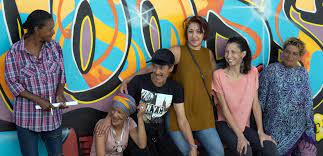Tokyo, Japan — Cases of mycoplasma pneumonia, a respiratory disease caused by the bacteria Mycoplasma pneumoniae, have been surging in Japan, reaching record highs for four consecutive weeks as of October 20. According to data released by the National Institute of Infectious Diseases (NIID) and reported by local media, approximately 500 medical institutions nationwide recorded an average of 2.01 cases per institution in the week ending October 20, marking the first time this figure has surpassed two cases per facility since the reporting system was introduced in 1999.
The recent surge has brought patient numbers to their highest-ever weekly total, overtaking the previous record of 1.64 cases per institution set in October 2016.
The respiratory infection, which spreads through droplets from sneezing and coughing, typically leads to symptoms such as fever, cough, fatigue, and headache. Children under 14 years of age are the most affected, comprising over 80 percent of cases, according to reports. Due to their vulnerability, pediatric cases have driven the recent spike, leading health experts to urge parents and schools to watch for symptoms and take preventive measures.
The current rise in cases has prompted Japanese health authorities to reinforce public health advisories about the infection, especially in schools and public spaces where children gather.












